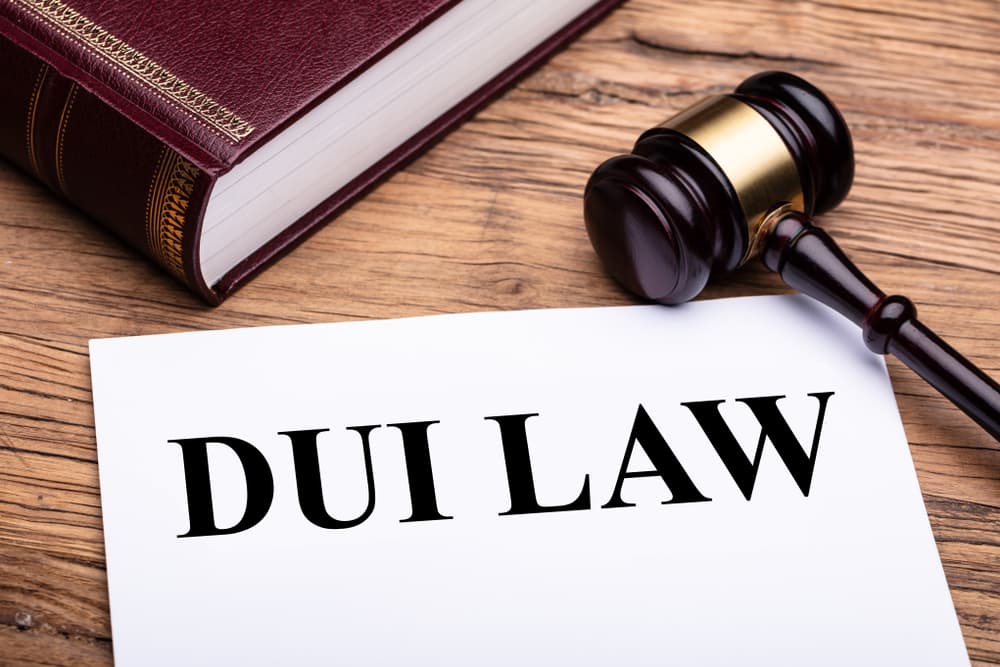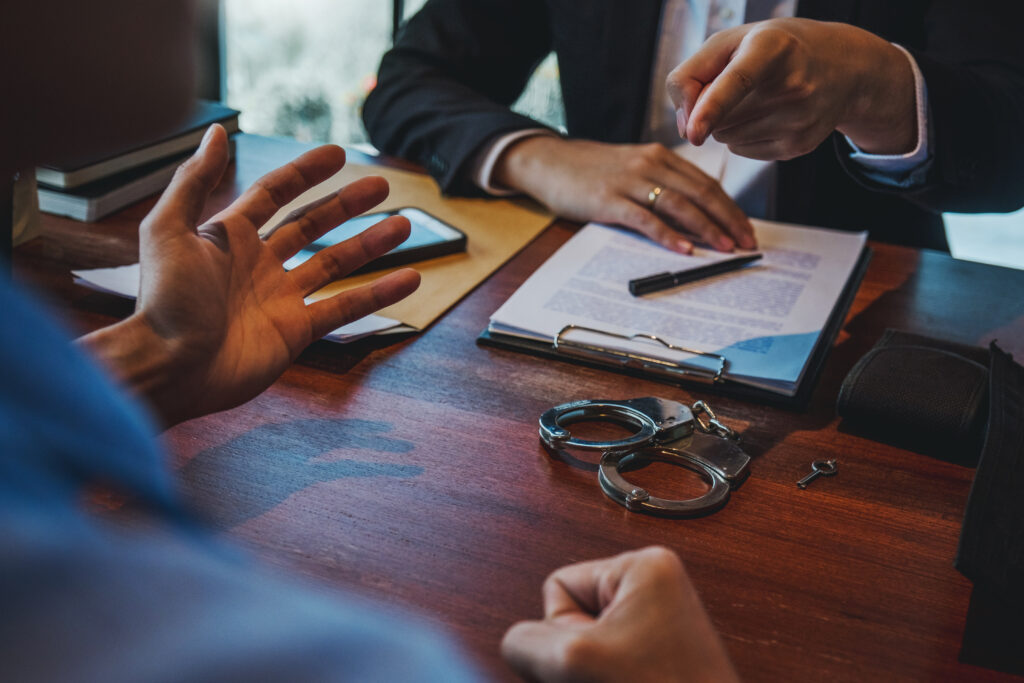Criminal charges are serious and can have life-changing consequences, including jail time, fines, a permanent criminal record, and damage to your reputation. Even a first-time offense can affect your job, education, and future opportunities. If you are facing a criminal charge, a skilled criminal defense attorney can make a significant difference in the outcome of your case.
A defense attorney will protect your legal rights from the moment you are charged. They will review the evidence, look for errors in the investigation, and build a strong defense strategy. They can ask the court to dismiss evidence or even the entire case if your rights were violated. They can also negotiate with the prosecutor for reduced charges or lighter penalties.
Whether it’s a DUI, drug charge, or another offense, a knowledgeable criminal defense lawyer will fight for the best possible result and help you move forward with your life.
Types of Criminal Charges Individuals Can Face
Driving Under the Influence (DUI) is one of the most frequently charged criminal offenses that people can face.
To convict someone of DUI, the prosecution must prove three main elements beyond a reasonable doubt.
- First, the person was driving or had actual physical control of a vehicle. It means they were either operating the vehicle or were in a position to operate it.
- Second, the person was under the influence of alcohol or drugs. It means their mental or physical abilities were impaired by substances.
- Third, this impairment affected their ability to drive safely.

Evidence used in DUI cases often includes results from a breathalyzer or blood tests showing blood alcohol concentration (BAC) above the legal limit, officer observations during the traffic stop, results of field sobriety tests, and sometimes video footage from body cameras or traffic cameras.
Drug charges are also very common and can include possession, distribution, manufacturing, or trafficking of illegal substances. To convict, the prosecution must prove that the defendant knowingly possessed the drug. “Knowing possession” means the person was aware the drug was present and understood it was illegal.
The prosecution must also establish that the substance was a controlled drug, which is typically confirmed through lab testing. For charges related to selling or distributing drugs, the prosecution has to show the defendant intended to sell, deliver, or distribute the drug, not just possess it. This can be demonstrated by evidence such as large quantities of drugs, packaging materials, scales, or large amounts of cash.
In some cases, charges may be more specific, such as possession with intent to distribute, drug trafficking, or manufacturing. Each has slightly different elements the prosecution must prove, but knowledge, control, and intent are usually critical.
In all criminal cases, the prosecution must prove each element of the offense beyond a reasonable doubt. This means the evidence must convince the judge or jury that there is no reasonable explanation other than the defendant committed the crime.
It’s important to remember that being charged does not mean guilt—everyone has the right to a fair trial where the evidence is thoroughly examined.
How to Find a Good Criminal Defense Lawyer
Finding the best criminal defense attorney for your case is vital to protecting your rights and ensuring the best possible outcome. Not all lawyers are the same, and choosing the right one depends on several important factors that relate directly to your situation.
First, consider the attorney’s experience. Look for a lawyer who regularly handles criminal defense matters and has handled cases similar to yours. For example, if you are facing DUI charges, an attorney with a strong track record defending DUI cases will understand the laws, procedures, and possible defenses better than a general practice lawyer. You can often find this information on the attorney’s website or by asking during an initial consultation.
Next, reputation matters. You want an attorney who is respected in the legal community and has positive reviews from former clients. Check online reviews and ratings from legal directories, and ask for references if possible. Talking to people who have worked with lawyers can give you insight into how they communicate, their professionalism, and their success in court.
Another important factor is communication. Your attorney should be someone who listens to your concerns, explains legal terms clearly, and keeps you updated throughout your case. Criminal cases can be stressful and confusing, so having a lawyer who is easy to reach and willing to answer your questions is essential.
Costs and fees should also be discussed upfront. Some attorneys charge a flat fee, while others bill by the hour. Ensure you understand how much the representation will cost and what services are included. It is important to balance quality with affordability.
Location can also be a factor. Hiring a lawyer who practices in the jurisdiction where your case is being handled can be advantageous because they will be familiar with local courts, judges, and prosecutors.
Finally, trust your instincts. After meeting with a few attorneys, consider who made you feel the most confident and comfortable. A good attorney-client relationship is built on trust and respect, which can help work better as a team.
Taking the time to choose carefully can make a significant difference in the outcome of your criminal case.
How Can a Knowledgeable Criminal Defense Attorney Handle Your Case?
A skilled criminal defense lawyer plays an invaluable role in protecting your rights and guiding you through the complicated criminal justice system. From the moment you are charged until your case is resolved, a good defense attorney works to defend you at every stage.

One of the first things a skilled lawyer does is review the details of your case thoroughly. They examine police reports, witness statements, and any evidence the prosecution has gathered. It helps them identify any weaknesses in the prosecution’s case or violations of your rights, such as illegal searches or improper arrests. Finding these mistakes early on can sometimes lead to evidence being excluded or even having the charges dropped.
Next, your attorney will develop a strong defense strategy tailored to your situation. It may include negotiating with the prosecutor for reduced charges or a favorable plea deal if going to trial is not the best option. A skilled lawyer understands the strengths and weaknesses of your case and works to find the best possible outcome for you.
If your case goes to trial, your lawyer will represent you. They will present evidence, question witnesses, and make legal arguments to challenge the prosecution’s case. A criminal defense lawyer knows the rules of evidence and courtroom procedures, which is critical to protecting your rights and ensuring you receive a fair trial. They will also prepare you for what to expect during the trial so you can face it with confidence.
In addition to courtroom work, a skilled defense attorney handles all the paperwork and legal filings required throughout the case. They keep track of deadlines and ensure that all motions and responses are submitted on time. It helps avoid mistakes that can harm your defense.
Beyond the legal work, a criminal defense lawyer also provides advice and support. They explain the legal process, discuss your options, and answer your questions. This guidance helps reduce the stress and uncertainty of criminal charges.
A skilled criminal defense lawyer is your advocate, protector, and advisor. They manage every detail of your case, fight to defend your rights and work hard to achieve the best possible result. Hiring an experienced defense attorney gives you the best chance to successfully navigate the criminal justice system.
Successfully Defending Against a Criminal Charge
A skilled criminal defense attorney can raise several legal defenses if you are facing a DUI or drug charge. These defenses can challenge the evidence against you, protect your rights, and possibly lead to reduced charges or a case dismissal.
In a DUI case, one common defense is that the traffic stop was illegal. Police officers must have reasonable suspicion to stop a vehicle. If your attorney can show that the officer had no valid reason to pull you over, any evidence collected afterward—like breath test results or field sobriety tests—can be ruled inadmissible.
Another possible defense is challenging the accuracy of the breathalyzer or blood test. These tests must be conducted using proper procedures and well-maintained equipment. If the machine was not calibrated correctly or the officer did not follow protocols, your lawyer can argue that the results are unreliable and should not be used against you.
Field sobriety tests, such as walking in a straight line or standing on one leg, are also not always reliable. Medical conditions, nerves, poor lighting, or uneven ground can affect your performance. Your attorney may use these facts to question whether you were truly impaired.
For drug charges, one possible defense is that you did not knowingly possess the drug. The prosecution must prove you knew the substance’s presence and illegal nature. If the drugs were found in a shared space—like a car or apartment—you can argue that they did not belong to you.
Another defense is unlawful search and seizure. If the police searched your property without a valid warrant or consent, any drugs they found may not be used in court. Your attorney can file a motion to suppress that evidence.
Entrapment is also a possible defense in drug cases. If law enforcement pressured or tricked you into committing a crime you otherwise wouldn’t have committed; your attorney may argue that you were unfairly targeted.
By carefully reviewing the facts of your case, a criminal defense attorney can determine which legal defenses apply and use them to protect your rights and fight the charges against you.
Plea Deals Versus Trials in Criminal Cases
When facing a DUI or drug charge, one of the biggest decisions you will have to make is whether to accept a plea deal or take your case to trial. This decision can have a lasting impact on your future, so it is important to understand the differences and how a knowledgeable criminal defense attorney can help you choose the best option.
A plea deal, also known as a plea bargain, is an agreement between you and the prosecutor. In most cases, you agree to plead guilty or no contest to a lesser charge in exchange for a lighter sentence or the dismissal of more serious charges. Plea deals can help avoid the uncertainty of a trial, reduce jail time, or keep a felony off your record. However, you must give up your right to a trial and accept responsibility for the charge.
Taking a case to trial means your attorney will present your defense in front of a judge or jury. You are presumed innocent, and the prosecution must prove your guilt beyond a reasonable doubt. Trials offer the chance of being found not guilty, but they also carry risks. If you lose, the penalties can be more severe than those in a plea deal.
A knowledgeable criminal defense attorney will carefully examine the evidence against you and explain your chances of winning at trial. They will consider whether your rights were violated, the strength of the prosecution’s case, and whether key evidence could be thrown out. Based on this, they will help you understand if going to trial gives you a real shot at beating the charges.
Your attorney will also negotiate with the prosecutor for the best plea offer. They will ensure you fully understand the legal and personal consequences of the plea deal. For example, they’ll explain how it might affect your job, driver’s license, or criminal record.
Ultimately, the choice is yours, but your attorney’s experience and honest advice can guide you toward the option that best protects your rights and future. Whether you go to trial or accept a plea, having a skilled lawyer can make all the difference.
Speak with a Knowledgeable Criminal Defense Attorney Today

If you are currently facing a criminal charge, it’s essential that you have a qualified criminal defense attorney working for you. Your lawyer can handle your case from start to finish, protect your rights, and pursue the best available result. Make the call today and get a skilled professional on your side.